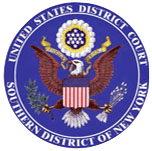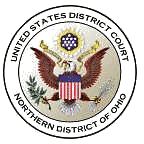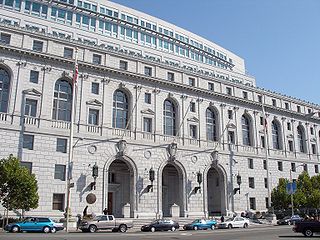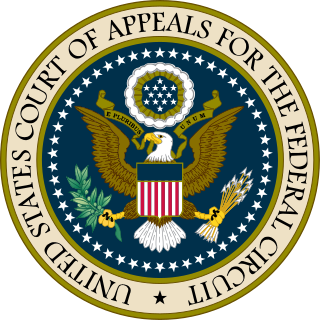Defamation is the oral or written communication of a false statement about another that unjustly harms their reputation and usually constitutes a tort or crime. In several countries, including South Korea, a true statement can also be considered defamation.
Actual malice in United States law is a legal requirement imposed upon public officials or public figures when they file suit for libel. Unlike other individuals who are less well-known to the general public, public officials and public figures are held to a higher standard for what they must prove before they may succeed in a defamation lawsuit.
Gertz v. Robert Welch, Inc., 418 U.S. 323 (1974), was a landmark decision of the US Supreme Court establishing the standard of First Amendment protection against defamation claims brought by private individuals. The Court held that, so long as they do not impose liability without fault, states are free to establish their own standards of liability for defamatory statements made about private individuals. However, the Court also ruled that if the state standard is lower than actual malice, the standard applying to public figures, then only actual damages may be awarded.
Tortious interference, also known as intentional interference with contractual relations, in the common law of torts, occurs when one person intentionally damages someone else's contractual or business relationships with a third party, causing economic harm. As an example, someone could use blackmail to induce a contractor into breaking a contract; they could threaten a supplier to prevent them from supplying goods or services to another party; or they could obstruct someone's ability to honor a contract with a client by deliberately refusing to deliver necessary goods.
Free Dominion was a Canadian conservative internet forum. The site used the phrase "Principled Conservativism" to describe its ideology.
Personal jurisdiction in Internet cases refers to a growing set of judicial precedents in American courts where personal jurisdiction has been asserted upon defendants based solely on their Internet activities. Personal jurisdiction in American civil procedure law is premised on the notion that a defendant should not be subject to the decisions of a foreign or out of state court, without having "purposely availed" himself of the benefits that the forum state has to offer. Generally, the doctrine is grounded on two main principles: courts should protect defendants from the undue burden of facing litigation in an unlimited number of possibly remote jurisdictions, and courts should prevent states from infringing on the sovereignty of other states by limiting the circumstances under which defendants can be "haled" into court.
Modern libel and slander laws, as implemented in many Commonwealth nations as well as in the United States and in the Republic of Ireland, are originally descended from English defamation law. The history of defamation law in England is somewhat obscure; civil actions for damages seem to have been relatively frequent as far back as the Statute of Gloucester in the reign of Edward I (1272–1307), though it is unknown whether any generally applicable criminal process was in place. The law of libel emerged during the reign of James I (1603-1625) under Attorney General Edward Coke who started a series of libel prosecutions. Scholars frequently attribute strict English defamation law to James I's outlawing of duelling. From that time, both the criminal and civil remedies have been found in full operation.
The origins of the United States' defamation laws pre-date the American Revolution; one influential case in 1734 involved John Peter Zenger and established precedent that "The Truth" is an absolute defense against charges of libel. Though the First Amendment of the U.S. Constitution was designed to protect freedom of the press, for most of the history of the United States, the U.S. Supreme Court failed to use it to rule on libel cases. This left libel laws, based upon the traditional "Common Law" of defamation inherited from the English legal system, mixed across the states. The 1964 case New York Times Co. v. Sullivan, however, radically changed the nature of libel law in the United States by establishing that public officials could win a suit for libel only when they could prove the media outlet in question knew either that the information was wholly and patently false or that it was published "with reckless disregard of whether it was false or not". Later Supreme Court cases barred strict liability for libel and forbade libel claims for statements that are so ridiculous as to be obviously facetious. Recent cases have added precedent on defamation law and the Internet.

Canadian defamation law refers to defamation law as it stands in both common law and civil law jurisdictions in Canada. As with most Commonwealth jurisdictions, Canada follows English law on defamation issues.

Rescuecom Corp. v. Google Inc. 562 F.3d 123, was a United States Court of Appeals for the Second Circuit case in which the court held that recommending a trademark for keyword advertising was a commercial use of the trademark, and could constitute trademark infringement. The case involved Rescuecom, a computer repair and support company, and Google, a web search and advertising company. Prior to the case's resolution, Google recommended the 'Rescuecom' trademark to businesses, that were buying keywords through Google's AdWords product.

Arista Records LLC v. Lime Group LLC, 715 F. Supp. 2d 481, is a United States district court case in which the Southern District of New York held that Lime Group LLC, the defendant, induced copyright infringement with its peer-to-peer file sharing software, LimeWire. The court issued a permanent injunction to shut it down. The lawsuit is a part of a larger campaign against piracy by the Recording Industry Association of America (RIAA).
Trademark infringement is a violation of the exclusive rights attached to a trademark without the authorization of the trademark owner or any licensees. Infringement may occur when one party, the "infringer", uses a trademark which is identical or confusingly similar to a trademark owned by another party, in relation to products or services which are identical or similar to the products or services which the registration covers. An owner of a trademark may commence civil legal proceedings against a party which infringes its registered trademark. In the United States, the Trademark Counterfeiting Act of 1984 criminalized the intentional trade in counterfeit goods and services.

Smith v. Summit Entertainment LLC, No. 3:11-cv-00348, was a case heard by the United States District Court for the Northern District of Ohio, in which professional singer Matthew Smith, known as Matt Heart, sued Summit Entertainment. Smith asserted seven causes of action for Summit Entertainment's wrongful use of copyright takedown notice on the website YouTube, among which three were dismissed and four were ruled in Smith's favor. The case is noteworthy given that copyright 17 U.S.C. § 512 claims are hard to win, and the plaintiff's success was due to the combination of his persuasive story and convincing additional claims which complemented § 512.

Krinsky v. Doe 6, was a decision by the California Court of Appeal, Sixth District, addressing the evidentiary standard required of plaintiffs seeking the identification of anonymous Internet posters. The case addressed defamation and the right to anonymous speech on the Internet. Plaintiff Lisa Krinsky sued Doe 6, an anonymous poster to Yahoo! message boards, for defamation. Krinsky served a subpoena to Yahoo! for Doe 6's identity. Doe 6 filed a motion to quash the subpoena, "contending that he had a First Amendment right to speak anonymously on the Internet."

Obsidian Finance Group, LLC v. Cox is a 2011 case from the United States District Court for the District of Oregon concerning online defamation. Plaintiffs Obsidian Finance Group and its co-founder Kevin Padrick sued Crystal Cox for maintaining several blogs that accused Obsidian and Padrick of corrupt and fraudulent conduct. The court dismissed most of Cox's blog posts as opinion, but found one single post to be more factual in its assertions and therefore defamatory. For that post, the court awarded the plaintiffs $2.5 million in damages. This case is notable for the court's ruling that Cox, as an internet blogger, was not a journalist and was thus not protected by Oregon's media shield laws, although the court later clarified that its ruling did not categorically exclude blogs from being considered media and indicated that its decision was based in part upon Cox offering to remove negative posts for a $2,500 fee. In January 2014 the Ninth Circuit Court affirmed in part and reversed in part the district court's judgment awarding compensatory damages to the bankruptcy trustee. It also ordered a new trial on the blog post at issue.

Finjan, Inc. v. Secure Computing Corp., 626 F.3d 1197 (2010), was a patent infringement case by the United States Court of Appeals for the Federal Circuit involving "proactive scanning" technology for computer security. The Federal Circuit made a mixed decision after hearing the appeals from both sides. In terms of infringement, the Federal Circuit affirmed Secure Computing's infringement on Finjan's system and storage medium patent claims but reversed the infringement on Finjan's method claim. In terms of damage award, the Federal Circuit not only affirmed the previous $9.18 million award by the United States District Court for the District of Delaware, but also remanded for the district court to assess the extra damages between the post-judgement and pre-injunction period.

Amaretto Ranch Breedables, LLC v. Ozimals, Inc. was a copyright case in the United States District Court for the Northern District of California involving a DMCA takedown notice dispute between companies that produce virtual animals on Second Life. Ozimals filed a DMCA takedown notice to Linden Research, the makers of Second life, claiming that Amaretto's horse infringed on their bunnies and demanding their removal. Consequently, Amaretto responded with a counter-DMCA notice and applied to the court for a temporary restraining order to forbid Linden Research from removing their virtual horses. This was granted and held in effect as the case proceeded. Amaretto claimed in court that Ozimal's DMCA notice was copyright misuse and asked for a declaration that its horses did not infringe copyright. Ozimals counterclaimed for copyright infringement. The court eventually dismissed both claims.

Rosetta Stone v. Google, 676 F.3d 144, was a decision of the United States Court of Appeals for the Fourth Circuit that challenged the legality of Google's AdWords program. The Court overturned a grant of summary judgment for Google that had held Google AdWords was not a violation of trademark law.
New Directions for Young Adults, Inc. v. Davis is a 2014 decision of a Florida state circuit court holding that using sock puppet accounts online is tortious interference with business relations, and awarding injunctive relief against it during the pendency of litigation.
Romag Fasteners, Inc. v. Fossil, Inc., 590 U.S. ___ (2020), was a United States Supreme Court case related to trademark law under the Lanham Act. In the 9-0 decision on judgement, the Court ruled that a plaintiff in a trademark infringement lawsuit is not required to demonstrate that the defendant willfully infringed on their trademark to claim lost profit damages.









